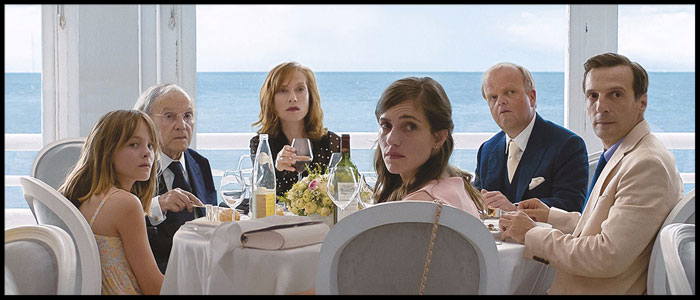
ManHunt
**/****
starring Zhang Hanyu, Masaharu Fukuyama, Qi Wei, Ha Jiwon
screenplay by Nip Wan Fung, Gordon Chan, James Yuen, Itaru Era, Ku Zoi Lam, Maria Wong, Sophia Yeh, based on the novel Kimiyo funnu no kawa wo watare by Juko Nishimura
directed by John Woo
HAPPY END
**/****
starring Isabelle Huppert, Jean-Louis Trintignant, Mathieu Kassovitz, Toby Jones
written and directed by Michael Haneke
by Bill Chambers About five seconds into John Woo’s Man Hunt (no relation to that Fritz Lang movie with George Sanders in a cave), there’s a freeze-frame. Followed shortly by another. It’s glorious. Digital filmmaking has no doubt made it easier for Woo to be himself, as has being back in Asia: Hollywood never did warm to his Peckinpah flourishes, nor his melodramatic flair. But something is off in Man Hunt, which finds Woo returning, a touch desperately, to the Heroic Bloodshed genre in the form of a gloss on The Fugitive. (Officially, it’s a remake of a Ken Takakura vehicle variously known as Manhunt and Hot Pursuit.) Chinese Du Qiu (Zhang Hanyu) is a hotshot lawyer for a pharmaceutical company that frames him for the murder of an alleged lover (Tao Okamoto, bestowing her iconic look on a role that doesn’t thank her in return) to protect its secrets; Japanese Yamura (Masaharu Fukuyama) is the hotshot Inspector sent after Du when he escapes custody. Du repeatedly eludes Yamura’s clutches, but over the course of the chase they build a rapport that transcends lawful and cultural barriers and, à la Hard-Boiled, unite against a common enemy, corrupt CEO Yoshihiro Sakai (Jun Kunimura). I should mention the two female super-assassins hot on Du’s trail, since Woo’s daughter Angeles plays one of them. For better or worse, this is personal filmmaking.

